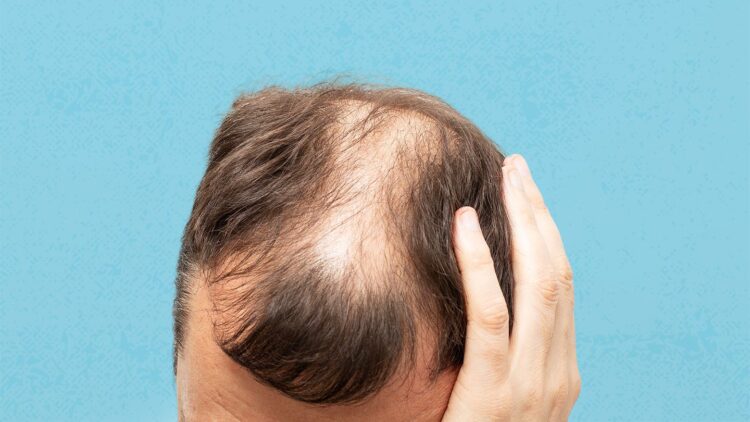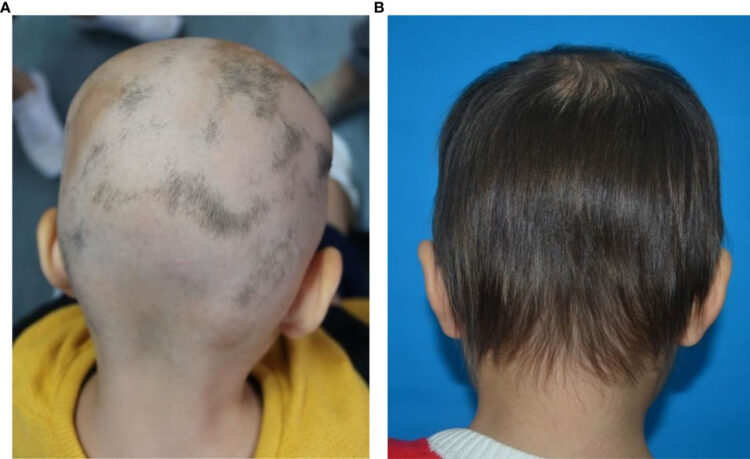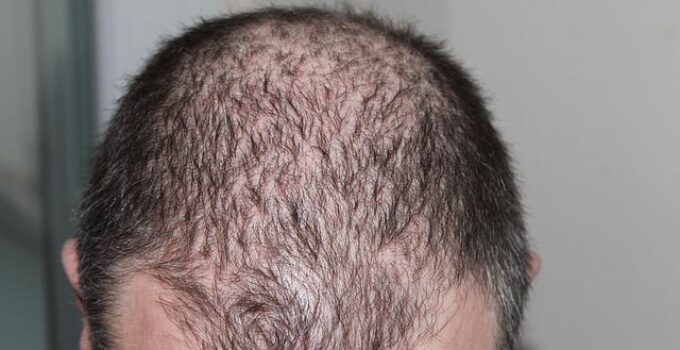Hair loss or alopecia is a common condition. While it’s more rampant in older adults, anybody can experience it, even children. While shedding between 50 and 100 hairs daily is normal, losing significantly more hair daily should be a cause for concern as this is a major alopecia symptom. If you’re unsure whether you’re experiencing hair loss, look out for signs like a receding hairline, a widening part, and pain/itching.
You may also be suffering from hair loss if bald patches start appearing or you find your shower or sink drains clogged with hair. Catching hair loss early is key to determining its cause so you can get the right treatment. Discussed below are several reasons you may be experiencing hair loss.
Page Contents
Androgenetic alopecia

Source: images.everydayhealth.com
Androgenetic alopecia is among the most common hair loss causes in women and men. It can affect anyone, including the old and young, not forgetting the adolescents and children. Also referred to as pattern baldness, androgenetic alopecia is a gradual hair loss caused by hormones and genetics. It occurs due to the shrinking of hair follicles. In men, testosterone alopecia is primarily characterized by a unique pattern affecting the scalp’s temples, top, crown, and front.
Conversely, women hardly go bald due to pattern baldness. Normally, they suffer diffuse thinning. In some situations, however, it can advance in the shape of a pattern. Age and genetics are the two primary androgenetic alopecia risk elements. If you’re experiencing androgenetic alopecia, oral and topical medications that slow hair loss and stimulate growth are usually the most successful when started in advance. You can visit this website to learn more and order these medications.
Cancer treatments
The majority of cancer treatment-related hair loss results from chemotherapy as it targets fast-growing cells, destroying hair follicles and causing hair fall. Also, radiation therapy, when used to cure the head and neck, can, at times, lead to hair loss. However, this depends on the part receiving radiation. Your hair may start falling out a few weeks after beginning treatment. It may fall out gradually or rapidly in clumps. You may start noticing quantities of loose hair in your hair brush, pillow, or shower or sink drain.
The hair loss may continue all through the treatment and up to several weeks later. You may go completely bald or experience hair thinning. However, this will depend on your type of treatment. While hair regrows after treatment, it starts regrowing in four to six weeks after completing treatment. You can expect your hair to have grown about four to six inches long within twelve months. While there’s not much you can do to keep your hair from falling out after or during chemotherapy, applying Minoxidil on your scalp can accelerate hair regrowth.
Childbirth
Postpartum hair loss refers to excessive hair shedding a few months after giving birth. It’s a common condition after pregnancy and isn’t permanent. Postpartum hair loss is caused by hormonal changes during and after pregnancy. These hormones result in most hairs in the anagen or growing stage going into the telogen or the resting stage. The affected hairs fall out several months later. Childbirth-related hair loss is usually due to a decline in estrogen levels. While there’s no treatment for this kind of hair loss, you can prevent excessive damage and further hair loss by:
- Handling your hair with care
- Going for conditioners and shampoos that increase volume
- Trying different hairstyles
- Avoiding intensive conditioners
You can expect your hair to get back to its normal growth pattern over time.
Stress
Stress can contribute to or cause hair loss, which is usually temporary. If your stress is chronic or long-term, you may have more stress hormones flowing through your body., negatively affecting your body and increasing the risk of hair loss. Stress jolts a significant number of hair follicles into the telogen stage, where growth stops. These hairs may fall out suddenly after a few months. Stress triggers several types of hair loss, including:
- Telogen effluvium: When experiencing this kind of hair loss, most of your hairs move from the growing phase into the resting stage, meaning you end up losing more hair than usual
- Trichotillomania: It’s a compulsive desire to pull out your hair
- Alopecia areata: It’s a unique kind of hair loss that leads to the appearance of tiny coin-sized bald spots across the scalp, body, and face
Depending on the sort of stress-related hair loss you’re experiencing, the following treatment options can help promote healthy hair regrowth :
- Minoxidil
- Immunotherapy
- Steroid lotions, creams, injections or tablets
- Psychological therapy
Stopping birth control pills

Source: health.wordpress.clevelandclinic.org
Birth control methods have synthetic hormones that play a significant part in hair loss. These medications work by adjusting the hormonal balance in your body. Considering that hormones influence and control the hair growth cycle, birth control, including contraceptive pills and injections, can significantly impact hair retention and growth.
The synthetic hormones in birth control can be oestrogenic (that support the growth of healthy hair) or androgenic (meaning they can considerably interfere with the hair growth cycle). Pills with synthetic estrogen expedite hair growth while contributing to thicker, softer, healthier hair. Stopping these pills or changing to a different birth control method can result in excessive hair shedding.
Discontinuing synthetic estrogen pills leads to a sudden decline in estrogen levels, causing telogen effluvium. This hair loss is temporary, meaning your hair will grow back within a few months. Androgenetic birth control pills made using prostegins lead to a rise in dihydrotestosterone, a hormone that affects the hair growth cycle while shrinking hair follicles. This results in slow hair thinning. You can consult a gynecologist before stopping your birth control for product recommendations that can cure or prevent contraceptive-related hair thinning.
Vitamin deficiency
Vitamins are key to promoting healthy hair growth. Without these vitamins, you risk experiencing hair loss. Vitamin D helps generate new, healthy follicles crucial for hair growth. A deficiency of this vitamin causes hair loss. Other minerals and vitamin deficiencies associated with hair loss include:
- Biotin
- Zinc
- Iron
- Vitamin A
- Vitamin E
- Amino acids
- Vitamin B12
If your hair loss results from vitamin deficiencies, focus on a healthy diet rich in minerals and vitamins that promote hair growth. You can also seek professional assistance for further guidance.
Endnotea

Source: frontiersin.org
Hair loss can be due to various causes. Understanding the reasons you may be experiencing hair loss can lead to effective treatment.





